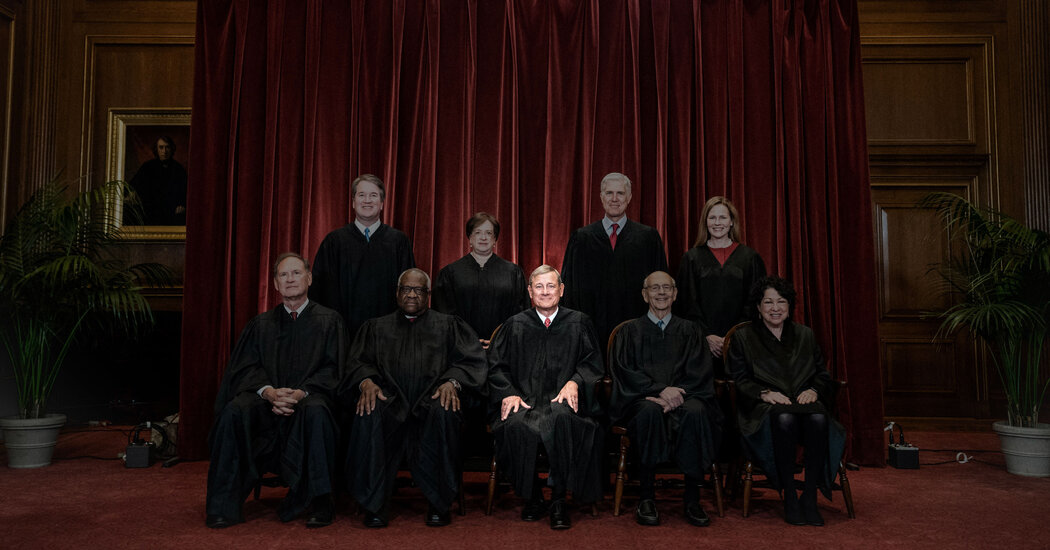Opinion | John Roberts Has Lost Control of the Supreme Court
Chief Justice Roberts voted with Justices Breyer, Sotomayor and Kagan in dissenting from six previous shadow docket rulings. But the Clean Water Act dispute was the first time he joined in the procedural criticism that the other conservatives were not just using the shadow docket but abusing it. In that respect, his rebuke cannot be dismissed as partisan. By publicly endorsing the charge that the conservative justices are short-circuiting ordinary procedures to reach their desired results without sufficient explanation, Chief Justice Roberts provided a powerful counter to defenders of the court’s behavior. Justice Samuel Alito, for instance, claimed in a September 2021 speech that critics of these rulings are acting in bad faith because their real objections are to the results in these cases.
What is especially telling about Chief Justice Roberts’s dissents in these shadow docket cases is that, unlike Justices Breyer, Sotomayor and Kagan, he’s often been sympathetic to the results. In February’s Alabama redistricting ruling, for instance, Chief Justice Roberts agreed that the court should reconsider the interpretation of the Voting Rights Act under which Alabama’s maps had been struck down; he just believed that any change in that interpretation had to come through the merits docket, not the shadow docket.
At least on the shadow docket, though that’s no longer up to him. Instead, the court’s destiny increasingly appears to be controlled by Justices Brett Kavanaugh and Amy Coney Barrett. She implored an audience at the Ronald Reagan Presidential Library just last week to “read the opinion” before jumping to any conclusions about whether the justices are acting more like politicians than judges. Two days later, she joined the majority’s unsigned, unexplained order in the Clean Water Act case, in which there was no opinion to read. Justice Kavanaugh, too, seems more troubled by criticisms of the court’s behavior than by the behavior itself, going out of his way in February’s Alabama redistricting cases to criticize the “catchy but worn-out rhetoric about the ‘shadow docket’” in Justice Kagan’s dissent.
It’s not the rhetoric that is wearing out, though; it’s the court’s credibility. The justices have long insisted — as Justices Sandra Day O’Connor, Anthony Kennedy and David Souter put it in 1992 — that “the court’s legitimacy depends on making legally principled decisions under circumstances in which their principled character is sufficiently plausible to be accepted by the nation.” The proliferation of principle-free decisions affecting more and more Americans — and with a clear, troubling tendency of favoring Republicans over Democrats — calls that legitimacy into increasingly serious question.
It’s understandable, then, why Chief Justice Roberts would finally speak out. No one better understands the stakes for the court’s credibility — and institutional viability. If even his objections can’t persuade the other conservatives to stop abusing the shadow docket, then that may signal the willingness of the court’s conservative majority to go even further in the future and to use the shadow docket to resolve even more significant and contentious constitutional questions.
Stephen I. Vladeck (@steve_vladeck), a professor at the University of Texas School of Law, specializes in the federal courts and constitutional law. He is also a co-host of “The National Security Law Podcast.” He is writing a book on the shadow docket.
Check out our Latest News and Follow us at Facebook
Original Source







